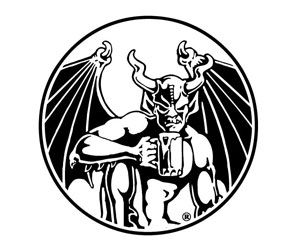After months of waiting, Stone Brewing finally broke its silenced yesterday, announcing that it would build a second U.S. brewing facility in Richmond, Va.
While the announcement was a big win for the city, it was a loss for another in the state. Norfolk, just two hours southeast of Richmond, was among the three remaining cities with a shot at landing the country’s tenth largest craft brewery.
But just because Stone will settle in Richmond doesn’t mean it won’t have a hand in the Norfolk craft scene. In a letter addressed to the city of Norfolk, the brewery has detailed plans to collaborate with brewers in the area on a beer that will be made “specifically and exclusively” for the city of Norfolk and its immediate region.
“We realize this isn’t the perfect scenario for residents of Norfolk, but in a show of appreciation for the next-level effort and grace of your government and citizens, we are prepared to provide your residents something special by leveraging the close geographic proximity of our new home and yours,” wrote Stone co-founders Greg Koch and Steve Wagner.
New York Times Stands Against Monopolizing Beer
Long running rumors of a possible Anheuser-Busch InBev takeover of SABMiller Plc. picked up steam last month when it was reported that ABI was “actively seeking” more than $120 billion of financing for a possible acquisition.
Given that such a deal would consolidate the world’s two largest beer powers and bring almost a third of the world’s beer supply under one corporate umbrella, SABMiller would likely need to divest some of its brands in the U.S. and China in order to comply with antitrust laws, should a takeover actually come to fruition.
This week, the New York Times Editorial Board came out against the idea of a mega merger, arguing that it would lead to increased beer prices in the U.S.
But editors didn’t just argue against monopoly. They also took a stand for craft brewers:
“In addition to raising prices, the big brewers have used their clout to try to slow the growth of craft beer companies by offering distributors and retailers incentives not to carry smaller labels. While craft beers are growing fast — they were up 17.2 percent in 2013 even as total beer sales declined by almost 2 percent — smaller brewers account for just 7.8 percent of American beer sales. And many of them cannot easily expand because they are often at the mercy of large wholesalers who cater to the industry giants.”

In September, Clown Shoes Beer was informed that its Georgia wholesaler, Quality Wine & Spirits, would exit the beer business.
Clown Shoes — which produces its beer under contract a Mercury Brewing in Ipswich, Mass. — received a letter from the wholesaler informing the brewery of the change.
“Presuming that you wish to continue selling in the Georgia market you will need to find alternative distribution.” the letter (which was published to the brewery’s blog) read. “Once you have identified a distributor please put them in touch with us and we will work out the transfer of distribution rights.”
But that’s not how things went down. In its blog post, Clown Shoes alleges that Quality was seeking bids for the brand without any input from the brewery.
Wrote the brewery:
“When Quality’s inability to make a deal became clear, I requested our release as of September 30th. The owner of Quality refused, claiming he still wanted time to make a deal.
I asked Quality for a plan to continue sales and was told by the former beer manager that he was not sure how well they would do, as he had been reassigned and that he did not have a ‘crystal ball.’ Then he sent me an order that was about 1/5 the size of a normal order, which we refused to ship.”
Days later, however, the two parties were able to reach an agreement whereby Quality would cede distribution rights to General Wholesale, based in Atlanta, Ga.
While the details of the resolution are unclear — Clown Shoes wrote simply that Quality had “other real problems” of their own to deal with — the end result has left Clown Shoes without any resentment.
Love Hops? Could be Genetic.
A new study conducted by the National Center for Biotechnology Information has found that one’s love for all things bitter, including for hoppy beers, could be genetic.
Study participants carrying bitter taste receptors — scientifically known as TAS2Rs — and a polymodal nociceptor (TRPV1) are more likely to embrace, rather than wince, at the consumption of bitter foods and beverages.
Additionally, notes NPR, the study “found a connection with papillae, those little dots on your tongue.” The more little dots, the better one takes to bitterness.
There is also evidence, the article adds, that with age, bitterness seems “much less intense.”
We’ll drink to that.
